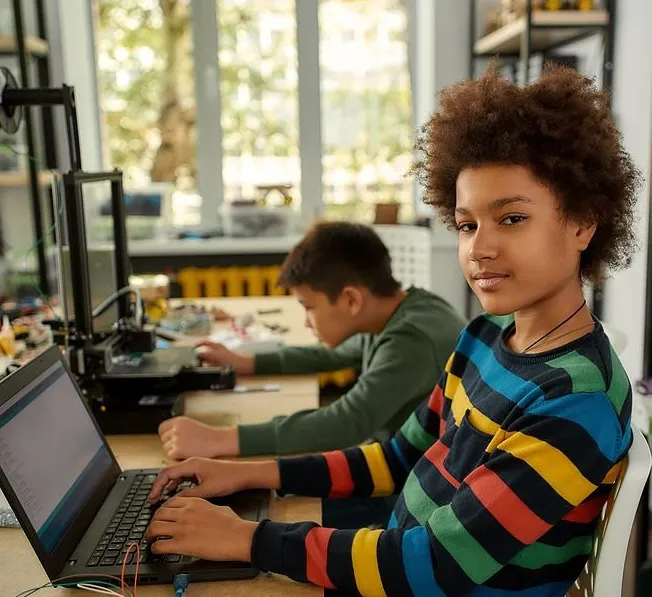As technology becomes more deeply woven into daily life, many parents are asking how best to prepare their children for a world defined by digital tools. Increasingly, the answer lies in coding—not just as a technical ability, but as a way to nurture creativity, problem-solving, and resilience.
Why Starting Early Matters
Introducing coding concepts at a young age helps children see technology as something they can control and create with, rather than just consume. Through playful activities like puzzles, games, and storytelling, kids can begin learning sequencing, logical patterns, and the basics of computational thinking in ways that feel natural and fun.
Developing Digital Literacy
Digital literacy is more than knowing how to use devices. It’s about understanding how technology works and applying it responsibly. By learning coding early, children gain confidence with technology and a foundation they can build upon as they grow.
Learning Through Play and Logic
Logic-based games are a great entry point because they teach sequencing and critical thinking in a hands-on way. These activities help children grasp the building blocks of programming long before they sit down to write code. Even unplugged games and board activities can strengthen these skills.
Scratch: A Creative Beginning
Scratch is one of the most popular platforms for kids starting out. By dragging and dropping coding blocks, children create their own animations, games, or stories. This approach allows them to experiment with both creativity and logic, laying the groundwork for more advanced programming.
Robotics: Bringing Code to Life
Robotics adds a physical element to coding by letting children program devices to perform real-world tasks. Whether it’s moving a robot across the floor or completing a challenge, this hands-on learning makes abstract concepts more tangible and exciting.
Productive Screen Time
Parents often worry about how much time their kids spend on screens. Coding helps shift that time from passive consumption to active creation. Instead of simply watching videos or playing games, children are designing and building their own digital projects.
Moving Into Advanced Coding
As kids grow, they can transition from block-based coding to text-based languages. JavaScript and Python are popular beginner-friendly languages that open the door to projects like web development, app design, and even artificial intelligence. Platforms that integrate coding into familiar environments—such as Minecraft—make this progression even more engaging.
Creating a Pathway to Future Careers
For some children, coding becomes more than a hobby. Early exploration can lead to opportunities in game design, robotics, cybersecurity, AI development, and many other fields. Parents can support this by encouraging independent projects, helping build a portfolio, and guiding kids toward competitions or coding clubs.
The Role of Camps and EdTech
Summer camps and online programs give kids immersive experiences, allowing them to focus on coding while working collaboratively with peers. The rise of educational technology has also made coding more accessible, offering interactive lessons and challenges that children can explore at their own pace.
Encouraging Creativity Through Code
Coding isn’t only about logic—it’s also a medium for creative expression. Children can design games, produce digital art, or build apps that combine their personal interests with technology. This makes coding more meaningful and enjoyable.
Supporting Without Expertise
Parents don’t need to be programmers to help. By exploring beginner tools, setting goals, and simply showing interest, you can play an essential role in your child’s learning. Educational toys and coding kits can also reinforce concepts in playful, hands-on ways.
Final Thoughts
Coding prepares children for much more than future jobs in technology. It equips them with the ability to think critically, solve problems, and express themselves creatively. From early logic games to building robots and experimenting with languages like Python, each step helps kids grow into confident, adaptable thinkers. By guiding your child’s journey with the right resources and encouragement, you’re giving them skills to not just adapt to the future—but to shape it.
